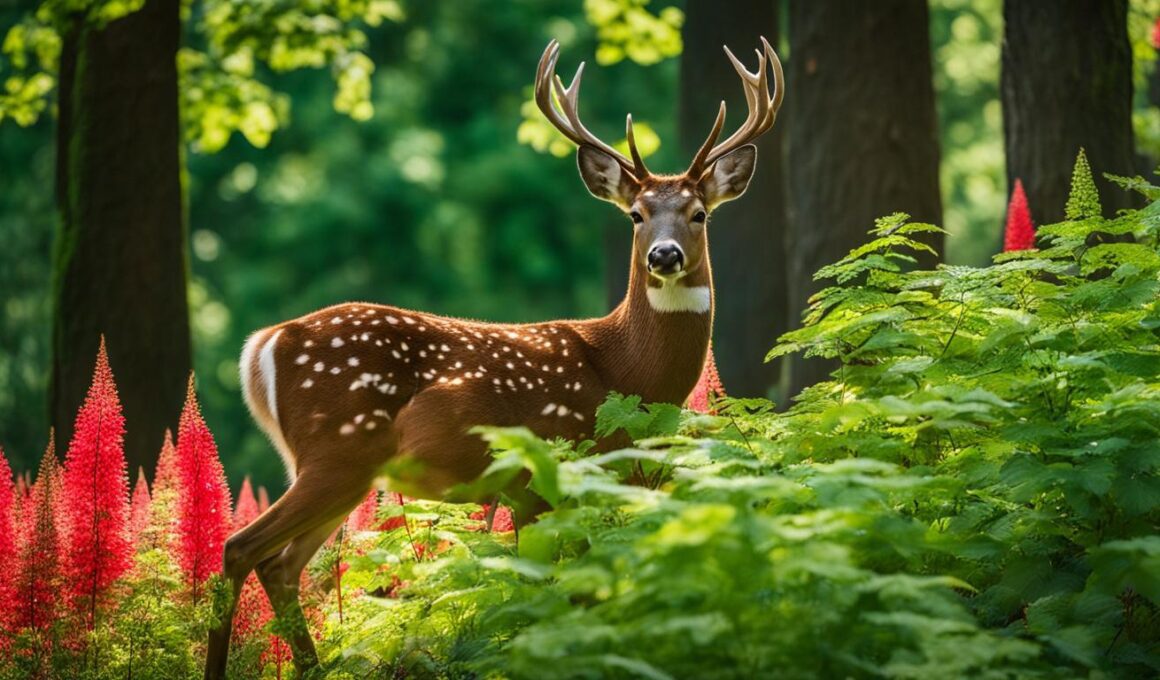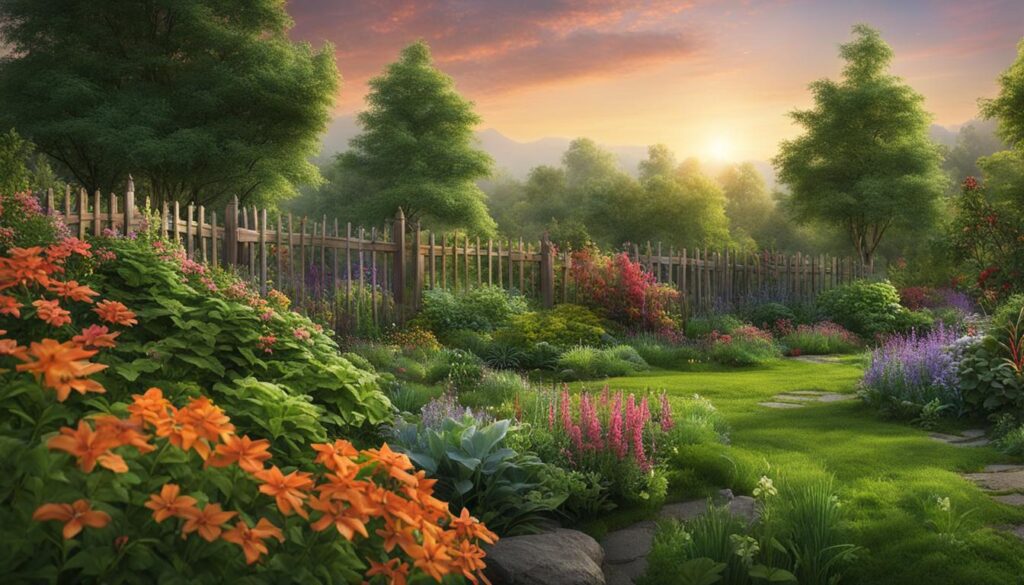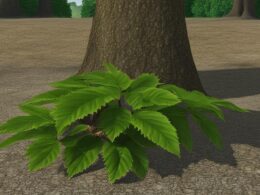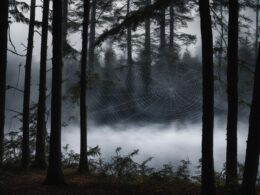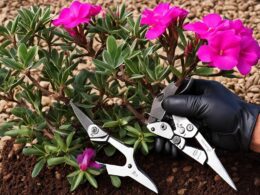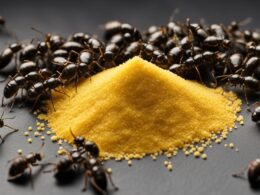Are you wondering whether deer have a taste for rhubarb? You’re not alone. Many gardeners want to know if deer pose a threat to their cherished rhubarb plants. Well, we have some good news for you. According to experts, deer are typically not attracted to rhubarb.
Multiple sources, including Growing Organic and Cornell University, have confirmed that deer find rhubarb unappealing. The reason behind this lies in the composition of rhubarb leaves. They contain a high concentration of oxalic acid, which is toxic to both humans and animals, including deer.
While the oxalic acid in rhubarb acts as a deterrent, other factors contribute to its unpalatability. The pungent smell and textured leaves of rhubarb make it an unpleasant choice for deer. These characteristics, combined with its toxicity, make rhubarb a deer-resistant plant.
However, it’s important to note that hungry deer, especially those facing food scarcity or extreme hunger, may still resort to consuming rhubarb. In such cases, large amounts of rhubarb can cause harm to the deer, including kidney failure and even death.
Although rhubarb is considered deer-resistant, it is not entirely foolproof against hungry deer. It serves as a deterrent but may not guarantee complete protection.
To safeguard your rhubarb and other beloved garden plants from hungry deer, it is advisable to employ additional deterrent measures. Odor repellents and fencing are effective methods for deer management. An 8-foot tall fence or a shorter fence with electrical wiring can serve as a barrier to keep deer away from your precious garden delights.
Stay tuned for the next section, where we’ll explore other deer-resistant garden plants that can add beauty and protection to your landscape.
Other Deer-Resistant Garden Plants
In addition to rhubarb, there are several other plants that are considered deer-resistant. When planning your garden, it’s important to choose plants that can withstand the presence of deer without being devoured. Incorporating a variety of deer-resistant plants into your garden can help minimize damage from deer grazing and ensure the longevity of your beautiful garden. Here are some examples of deer-resistant garden plants:
Root vegetables:
- Onions
- Garlic
Prickly vegetables:
- Cucumbers
- Squashes with hairy leaves
Strongly-scented herbs:
- Mint
- Sage
- Dill
Flowers:
- Marigolds
While these plants are considered deer-resistant, it’s important to note that hungry deer may still sample them, especially in times of food scarcity or high deer density. However, planting these deer-resistant varieties can act as a deterrent and reduce the chances of deer feasting on your garden plants. By diversifying your garden with a combination of these plants, you can create a landscape that is less appealing to deer and more enjoyable for you.
Conclusion
In conclusion, rhubarb is generally considered a deer-resistant plant due to its toxicity and unappetizing properties. The high concentration of oxalic acid in rhubarb leaves makes it unappealing to deer. However, it’s important to note that hungry deer may still consume rhubarb under certain circumstances.
Gardeners should understand that deer-resistant does not mean deer-proof. To protect your rhubarb and other garden plants from deer damage, it is recommended to implement additional deterrent measures such as odor repellents and fencing. An 8-foot tall fence or a shorter fence with electrical wiring can effectively keep deer out of your garden.
By combining these strategies, you can increase the chances of keeping deer away from your precious rhubarb plants and other delights in your garden.
Can Deer’s Diet Include Both Rhubarb and Pumpkins?
Yes, deer can eat both rhubarb and pumpkins. However, it is important to note that while they do deer eat pumpkins, rhubarb leaves are toxic to many animals, including deer. So, if you’re planning on feeding deer, be sure to only offer them the pumpkin flesh and not the leaves of the rhubarb plant.





